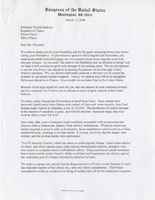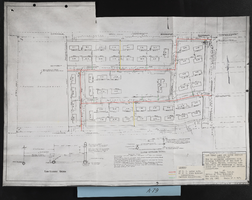Search the Special Collections and Archives Portal
Search Results
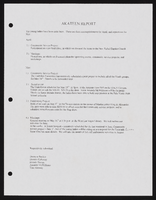
Alpha Kappa Alpha Sorority, Theta Theta Omega Chapter AKAteens reports
Date
Archival Collection
Description
From the Alpha Kappa Alpha Sorority, Incorporated, Theta Theta Omega Chapter Records (MS-01014) -- Chapter records file.
Text
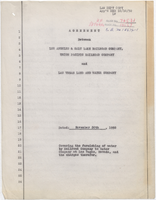
Agreement regarding the furnishing of water from Los Angeles & Salt Lake Railroad Company and Union Pacific Railroad Company to the Las Vegas Land and Water Company, November 30, 1950
Date
Archival Collection
Description
Contract between the Las Vegas Land and Water Company and the railroad and the new rate the water company will pay for water. "C.D. No. 15674-1" written in ink on cover page. Also has stamps "U.P. Audit No. 74531" and "LVL&WCo Audit No. 10567." Law dept. copy, approved by E.E. Bennett October 10, 1950.
Text

Meeting minutes for Consolidated Student Senate, University of Nevada, Las Vegas, March 20, 1975
Date
Archival Collection
Description
Text

Transcript of interview with Arte Nathan by Claytee White, December 11, 2014
Date
Archival Collection
Description
Text
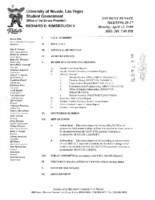
Meeting minutes for Consolidated Student Senate University of Nevada, Las Vegas, April 12, 1999
Date
Archival Collection
Description
Text

Irving Junior Foreman interview, March 16, 1978: transcript
Date
Archival Collection
Description
From the Ralph Roske Oral History Project on Early Las Vegas collection OH-00600. On March 16, 1978, collector John Russell Foreman interviewed Irving Junior Foreman (born June 25th, 1930 in Beaver, Utah) in North Las Vegas, Nevada. In this interview, Foreman speaks about his career in the construction industry in Las Vegas, Nevada. He also discusses the changes in the construction industry from the 1950s to the 1970s, including the machinery used.
Text
